Dear Students of the Postgraduate School of Thinking,
We will meet on Friday, October 4th, for our seminar on “Logical thinking and reasoning”. In order to arrive prepared that day, by that I mean both you and I, I have listed here three exercises for you to prepare. The background idea of this assignment is of course related to the fact that the focus of this seminar is on logical thinking and reasoning. Logic is a discipline with a rather old tradition, dating back to (at least) Aristotle, and has reached levels of sophistication that are quite impressive. However, at the end of the day, the goal remains to analyse and understand our reasonings, argumentations and debates in everyday life. As the topic is not all that well-known, the three tasks that follow are meant to “probe” your intuitions and strategies that you employ in daily life to evaluate arguments and reasonings. The first task, however, is a reading assignment to have at least some idea of what formal logic is all about. The second and third task are “free” in the sense that it would help me a great deal to see how you handle such questions and problems. It is not a matter of right or wrong (so it is definitely not some sort of “exam”) but rather how we deal with such matters.
Task 1: reading assignment
This open textbook is a nice introduction to formal logic and it is to be found here. The task is to read the first chapter (“What is logic?”) and to have a go at the exercises at the end of that chapter. Of course, feel free to read the rest of the book as well but, as said above, the idea is get some notions of formal logic and what it is all about.
Task 2: argument evaluation
What follows is a rather complex argument, presented in the form of a conversation between two persons. The task is quite simple (in a sense): how would you evaluate this argumentation (imagine yourself as the third person in the conversation)? Or, in other words, if you believe that the argument is correct (or wrong), why do you believe so? There is no need at this stage to try to formalize the argument (although if one cannot resist, please do so) but rather to come up with whatever form of justification to convince yourself or someone else of the correctness (or not) of the argumentation.
This is the argument:
“As everyone knows, when it rains or it snows, then, if you are not careful on the road, your car might behave funny. Really? But look, it is raining and my car behaves normal. Well, that only means that you are careful on the road, doesn’t it? Right! But I am not really sure if the same goes when it snows. Now, there you’re wrong, the conclusion does remain the case. Huh? And what if the sun shines?”
Task 3: when reasoning goes wrong
One of the interesting topics in formal logic concerns contradictions and paradoxes, basically those cases where reasoning performs badly, so to speak. What follows are two well-known paradoxes (or contradictions). The task is quite simply to write down your ideas about such problems (so not merely whether or not you agree with the reasoning). Are such problems important? Should we worry about them? If you do take the problem seriously, how would you deal with such problems? More specifically, do you have any “solutions” in mind? In short, the assignment is to evaluate such arguments from as many perspectives as you deem relevant.
Paradox 1: The heap
(a) One grain of sand does not form a heap of sand,
(b) If a number of grains of sand does not form a heap, then adding one grain will not turn that number of grains into a heap of sand,
(c) Therefore, no number of grains of sand can ever form a heap.
(d) Nevertheless, we do talk about heaps of sand.
Paradox 2: The liar
(a) Imagine someone, say John, utters the sentence “What I am now saying, is not true”.
(b) Question: is what John says true or not?
(c) Step 1: if he is speaking the truth, then what he says must be true, but what he says is that it is not true, hence he is not speaking the truth.
(d) Step 2: if he is not speaking the truth, then the negation of what he says must be true, but that means that what he is saying is true, hence he is speaking the truth.
(e) Therefore: John is speaking the truth if and only if he is not speaking the truth.
(f) Or, in other words, John is contradicting himself.
Could I kindly ask you to send in your responses on September 30th at the latest (in order to leave me sufficient time to digest your answers and comments). Please send your responses to the coordinator of this postgraduate program, namely Marta Lenartowicz). Thanks already and looking forward to meeting you on October 4th.
Jean Paul Van Bendegem


